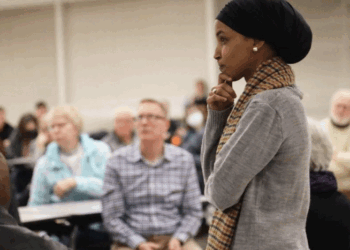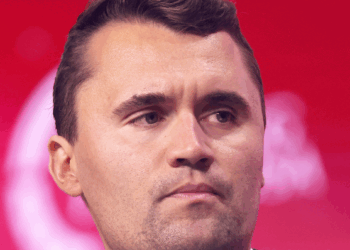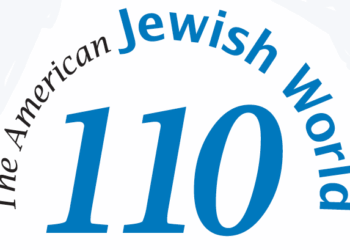The American Jewish World is dealing with a triple whammy in 2009. In addition to the ongoing double whammy of decreasing affiliation with the Jewish community (as a result of intermarriage, general disinterest in organized religion, etc.) and a drift away from newspaper readership (especially pronounced among members of Generation Y), we are faced with an economic crisis that is affecting our ability to sell advertising space in the newspaper.
There is no consensus among the experts about how quickly and how steep will be our economic descent. With many mortgages under water and household economies strapped, the great mass of consumers are not in a position to go on a buying spree to fuel demand. Unemployment numbers are rising; and there is anecdotal evidence of tough times, such as the situation last month when 700 applicants vied for one school janitorial job in Ohio.
Citing the most recent unemployment figures (8.5 percent, 663,000 jobs lost in March) and the inadequacy of the $787 billion stimulus plan, Robert Reich, former secretary of labor in the Clinton administration, wrote on his blog last Friday: “This is still not the Great Depression of the 1930s, but it is a Depression. And the only way out is government spending on a very large scale. We should stop worrying about Wall Street. Worry about American workers. Use money to build up Main Street, and the future capacities of our workforce.”
There is no bailout for Jewish newspapers on the horizon; so we will continue to tighten our belts in order to maintain the quality of the AJW. We are gratified that so many readers proclaim that the newspaper is a must-read for them. Really, we never get tired from fielding the bouquets thrown our way.
The brickbats aimed at our heads are another matter. We are open to reasoned disagreement about the opinions expressed in these pages and the choices we make about news content; but we draw the line at ad hominem attacks that imply that we are “anti-Semitic,” providing fodder for anti-Semites, or that we should be “ashamed” about our coverage of Israel.
Recently, we have received some vituperative comments about the publication of the Haaretz story detailing allegations of civilian killings during the Gaza war (3-27-09 AJW). That story was followed in our Passover special edition last week with a JTA story examining some of the discrepancies that IDF higher-ups found in the soldiers’ accounts.
Yet the brief review by the IDF into the soldiers’ allegations fails to answer all of the questions posed by various human rights groups — and by some of those who fought for Israel. There are calls for a complete and independent investigation into the conduct of the Gaza war.
J.J. Goldberg, writing in the March 26 edition of the New York-based Forward, suggests that some of the excesses in the Gaza war stem from the growing numbers of religious soldiers in the IDF’s elite combat brigades. Regarding the Gaza war, Goldberg writes that there have been “quiet discussions among some army insiders and close observers — reserve officers, military correspondents, politicians — who insist the abuse reports are substantially true and think they know the reasons for the abuse. One key reason, many say, is the ‘special character’ of the infantry units that carried the brunt of the fighting in Gaza: the Golani and Givati brigades. They talk about the units’ religious character — the high proportion in these brigades, especially Golani, of militant religious nationalists motivated by a messianic sense of mission to save the Land of Israel.”
Goldberg traces the growing influence of religious soldiers in the IDF, going back to the 1970s. “Many observers said that this arose from the Orthodox community’s new sense of mission as leaders of the settlement movement,” writes Goldberg.
Tensions came to the fore when soldiers were called to dismantle illegal West Bank settlement outposts about eight years ago; and the conflict between loyalty to rabbi or state became more fraught with the 2005 forcible evacuation of settlers from the Gaza Strip and a few small West Bank settlements. Some rabbis with Hesder (religious) units of the IDF called on soldiers to disobey orders.
Orthodox soldiers now comprise 30 percent of the students in the Israeli infantry’s officers’ training program, according to Goldberg, who writes that “some of them appear to be a sub-rosa part of the unfolding story of the ethical standards upheld by the military, which Israelis praise routinely as ‘the most moral army in the world.’”
During the Gaza war, the AJW presented varied viewpoints and reported on the local solidarity rally for Israel, as well as on the fact that some Jews and Jewish organizations were calling early on for a cease-fire. In a Jan. 30 editorial, I discussed my conversation with Yoni Shumacher, a young Israeli sergeant from Maale Adumim, who defended the conduct of his fellow soldiers: “We felt like we were very moral… everything we did was necessary… We did use a lot of force, but it was necessary.”
Apparently some readers think that they are in possession of the relevant “facts,” and reduce the moral and political complexities in the Israeli-Arab conflict to a set of talking points to bolster their particular arguments. At the AJW we see our job as presenting reportage and diverse opinions, so that each of our readers can form a nuanced viewpoint. Those who think they have a corner on the truth — and consequently feel free to malign anyone with a contending opinion — evince what seems like the very definition of a fascist mindset. Throughout history we have seen that people who are convinced of the righteousness of their cause (and believe that they are guided by God) can do some truly horrific things.
The small staff at the AJW works hard each week to produce an entertaining and edifying newspaper. We want to hear your concerns and we appreciate thoughtful feedback. If you value the Jewish World, please buy a gift subscription for a friend or relative. As we have remarked in the past, the publication of the newspaper is not like the rising and setting of the sun; we, like so many other agencies in the Jewish community, are navigating in some troubled economic waters and we need your support in the coming months. With your help the AJW can continue to be a catalyst for Jewish unity and cultural vitality.
— Mordecai Specktor /Â editor@ajwnews.com
(American Jewish World, 4.10.09)


















